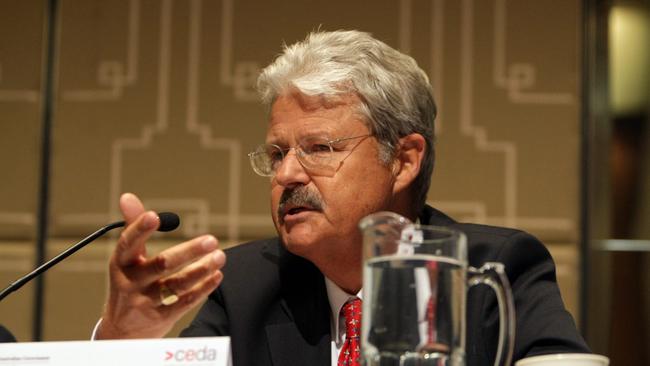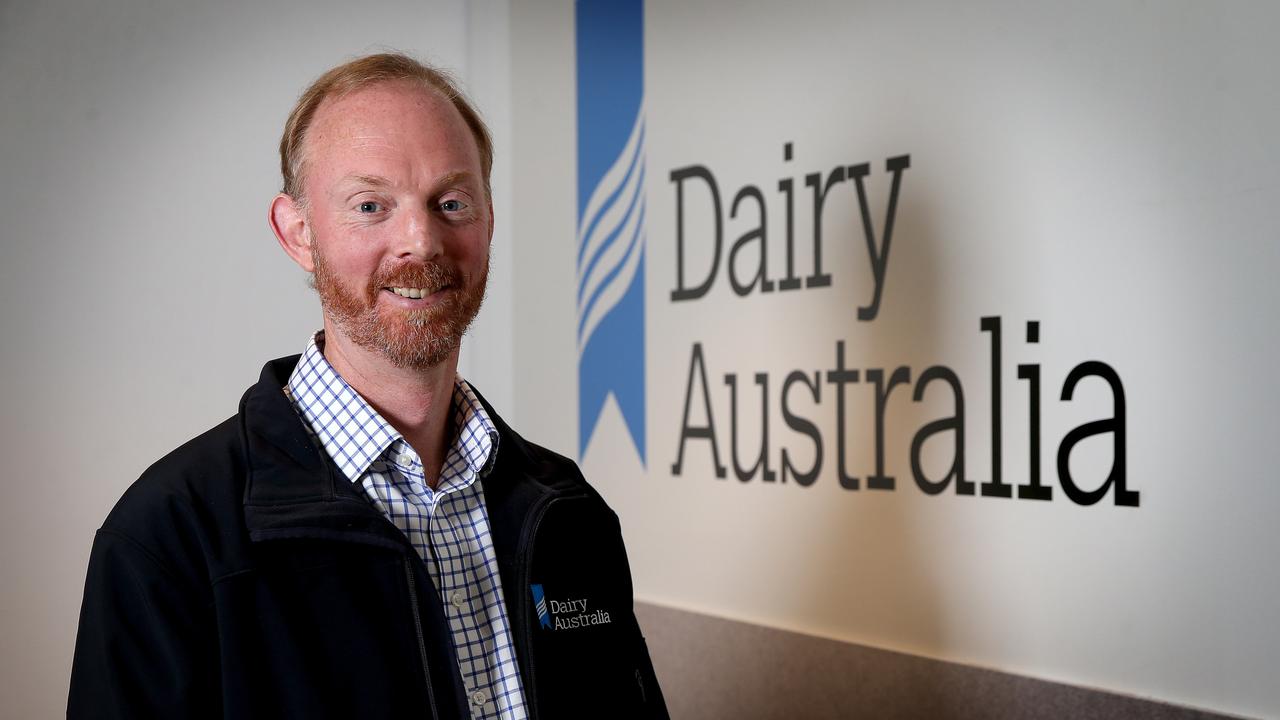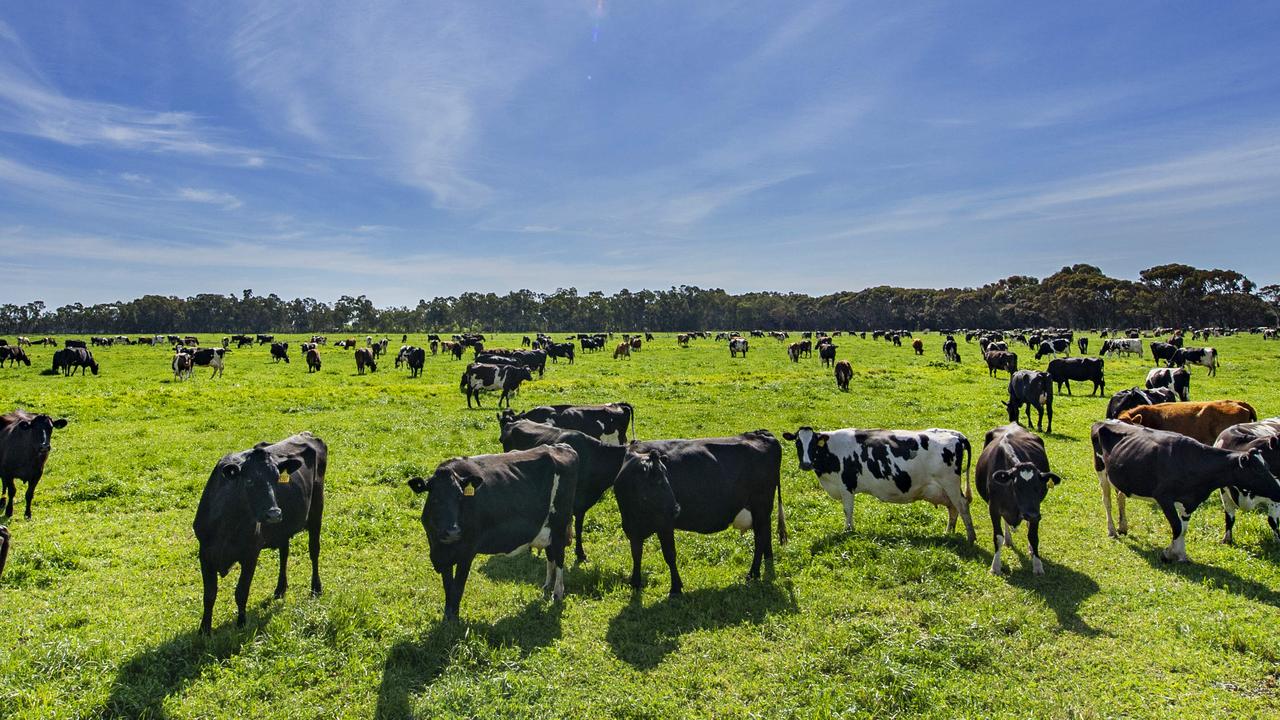Gary Sampson: Dahlsen Plan’s voluntary milk levy would meet World Trade Organisation rules
A voluntary dairy levy instituted by processors would not break international trade rules, former World Trade Organisation director Gary Sampson says.

I WAS told by a farming friend that many producers in the Australian dairy sector were struggling, both short term (bushfires, drought, pandemic) and long term (high input costs, low prices). He drew my attention to proposals for a voluntary levy of 40 cents per litre on home-grown drinking milk to alleviate the situation. According to recent opinion polls, 82 per cent of the public are prepared to pay more for their drinking milk, particularly in the light of the comparative price of soft drinks and bottled water.
Against this backdrop, my well-informed farming friend then asked “would a voluntary levy paid by consumers be considered a subsidy and violate World Trade Organisation (WTO) rules” as some argue. The answer is no.
Lacking support from the major retail chains, the question then became if the levy were mandated by the government, would it change things. The answer is yes. A government mandated levy would be classified as both an illegal subsidy and a trade distorting measure by the WTO.
This led me to look more closely at measures of support for agricultural production more globally.
In total there are 37 OECD Member countries which span the globe, from North and South America to Europe and Asia-Pacific. Australia’s support for the agricultural sector (i.e. mandated budgetary transfers from taxpayers due to government policy) is the second lowest of all OECD countries at less than 2 per cent of total farm receipts.
The OECD overall average is 27 per cent, or more than AUD$1 billion per day. EU farmers receive 25 per cent of their income from government support measures all of which are WTO legal. For Japan the figure is 56 per cent, Canada 42 per cent, Norway 94 per cent, Switzerland 75 per cent and 27 per cent for the United States.
Tariffs are one of the most egregious forms of trade protection. They directly impact world prices. I have focused on dairy; the results are extraordinary but not atypical for agricultural products.
The average import duty for Australian dairy products is 4 per cent with 74 per cent of dairy items imported duty free.
For the rest of the world, it is a different story; average tariffs for Norway are 326 per, 239 per cent for Canada, 100 per cent for Switzerland, 75 per cent for Japan, 32 per cent for the EU, and 28 per cent for the United States. As with the producer support, all are levied by governments and considered WTO legal.
In the Covid-19 world of today there is a scramble among nations to increase self-sufficiency and re-jig agriculture supply lines. Markets which are already highly protected will be further nurtured with support measures.
For example, to reduce reliance on imported products, more than 60 countries now have export restrictions which are increasingly applied to agriculture and food products –. Donald Trump, as President, signed into law disaster relief packages of $US 9.5 billion for agricultural producers affected by the pandemic. While such support measures are described as “temporary”, history makes clear that temporary trade measures soon acquire permanency.
With 70 % of Australian agricultural production exported, alarm bells should certainly be ringing. More than 70 per cent of Australian agricultural production is exported; 98% for wool and cotton, 71% for wheat, 76% for beef, 41% for dairy and 18% for horticultural products.
The “WTO illegal” government levy of 40 cents per litre on drinking milk when distributed across all milk producers would increase farm gate prices by about 13 cents. With a farmgate-price of around 50 cents per litre, this would increase prices (rather like a tariff) by 27 per cent; still the cheapest milk in the developed world but unfortunately WTO illegal.
Put more bluntly, this “illegal price support” pales into insignificance compared to price and other support considered acceptable to the WTO.
To be clear, I am not advocating increased across the board protection for dairy or any other sector. Recent issues of the Weekly Times have made clear that well managed dairy farms can be profitable with or without additional support. I spent my 18 years as a Director at the WTO working for the progressive removal of unnecessary trade-distorting measures to improve resource allocation. Success stories include the Australian and New Zealand governments where producers are the least protected in all OECD countries, and correspondingly, the most efficient and competitive in the world.
It is time to rethink the legal structure that underpins world trade, not only in dairy, but agriculture more generally. Why now?
First, the rules that govern international trade were negotiated two decades ago. They apply to a world that no longer exists, particularly in Covid-19 times. It is clear there is need for change.
Second, it is only the WTO that can rewrite global trade rules. With a WTO Director General now in place, a soon to be functioning dispute settlement system, and a change in the US administration, the door is open to sensible decision making by governments.
There is leadership role for Australia to play.
Third, Australia is as pure as any WTO country in respecting WTO rules. A leadership role would be taken seriously (as with Bob Hawke’s creation of the Cairns Group) but it cannot be done alone. The Regional Comprehensive Economic Partnership would be an appropriate forum for launching such a process. This would involve engaging the ministers of the 16 member countries (Japan, Korea, China, etc.) concerned about exorbitant agricultural budgets, Covid-19-trade related restrictive measures, and uncertain access to supply chains.
• Gary Sampson is a professor of international trade at Melbourne Business School
MORE:
FARMGATE BREAKTHROUGH AS BEGA STEPS UP


